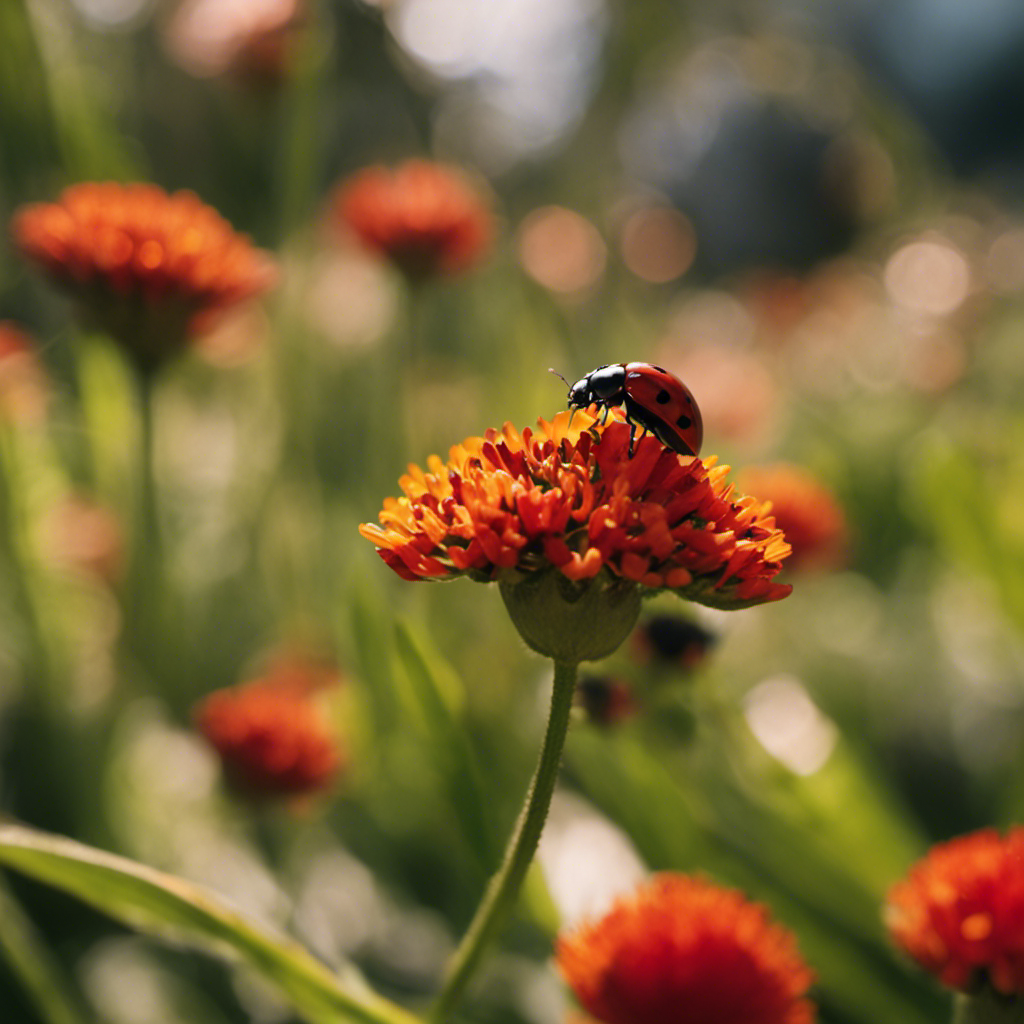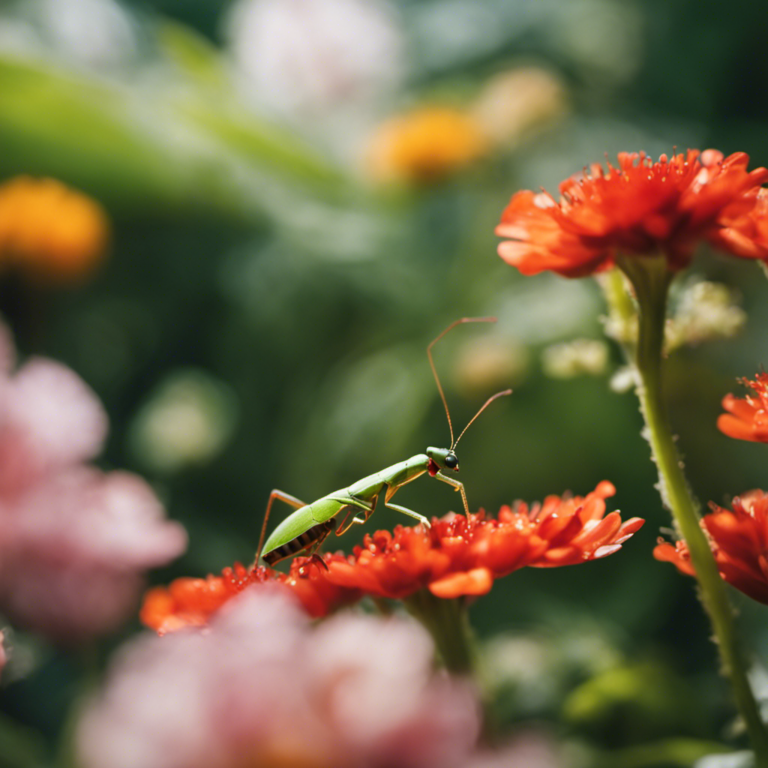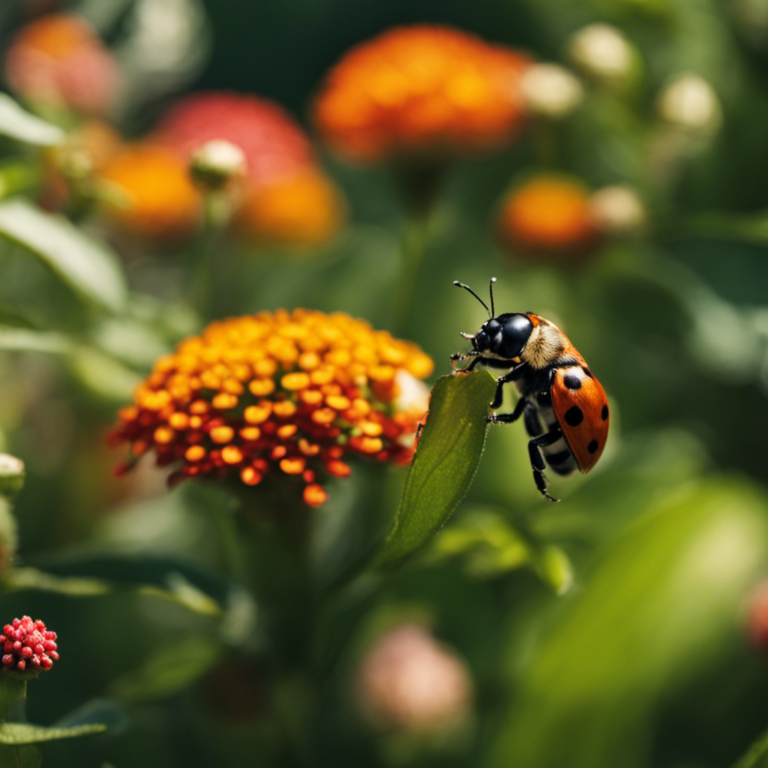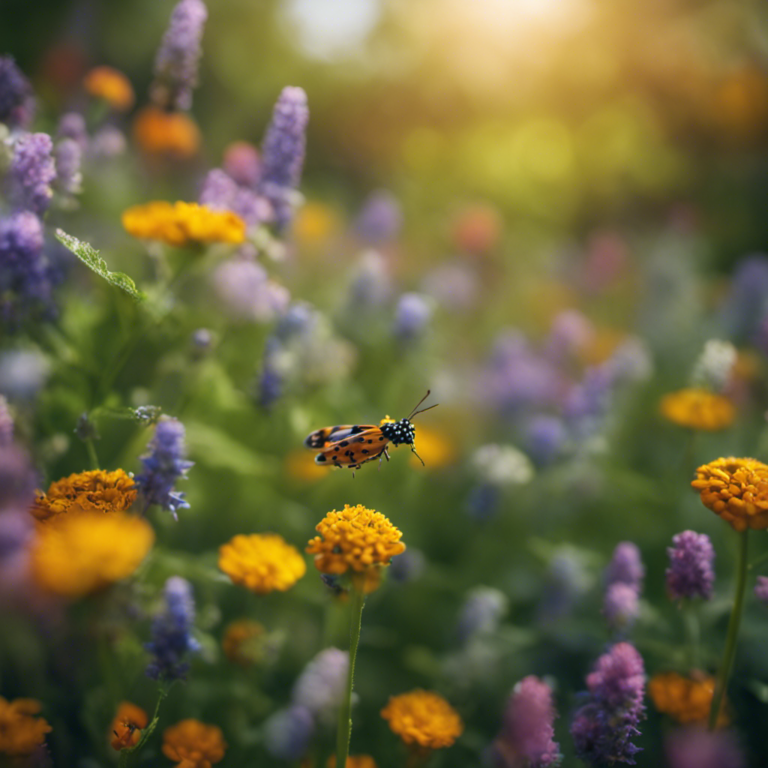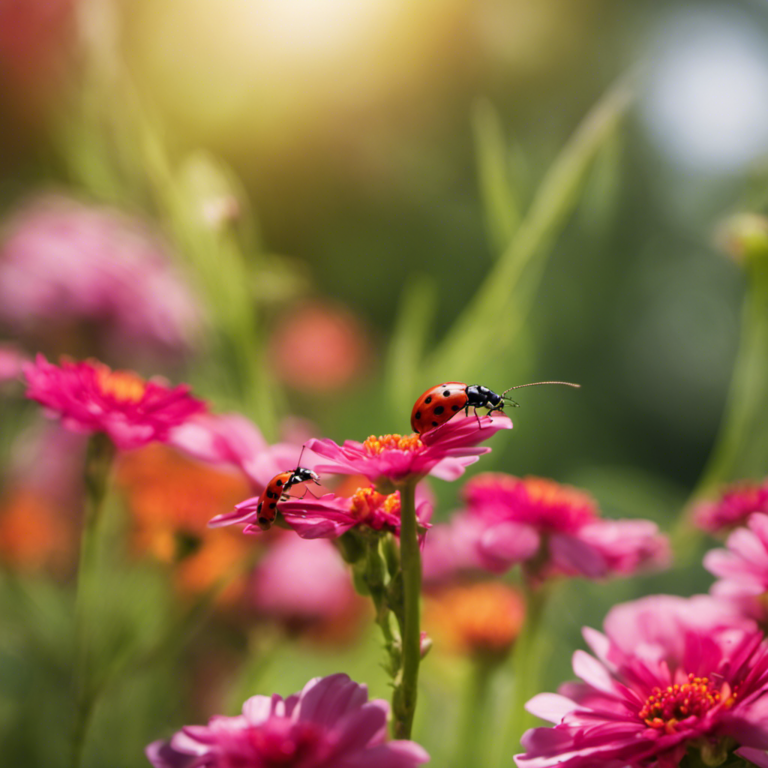In your mission to control the wild garden, you come face to face with a persistent group of bugs. But don’t worry, because there is a story of victory and sustainability waiting for you.
Learn the secrets of getting rid of bugs in an eco-friendly way, where natural predators become your friends and homemade sprays become your weapon of choice.
Join us on this journey of a gardener’s tale, where you’ll discover how to protect your plants and help Mother Nature at the same time.
Key Takeaways
As you embark on your journey to eliminate pests in an eco-friendly manner, it’s important to keep in mind that nature has provided us with many tools to maintain a balanced garden. By utilizing natural predators, practicing companion planting, making homemade organic pest sprays, and fostering a healthy soil environment, you can protect your plants without causing harm to the planet. These sustainable methods not only nurture your garden but also deepen your connection with the intricate web of life.
Natural Predators for Pest Control
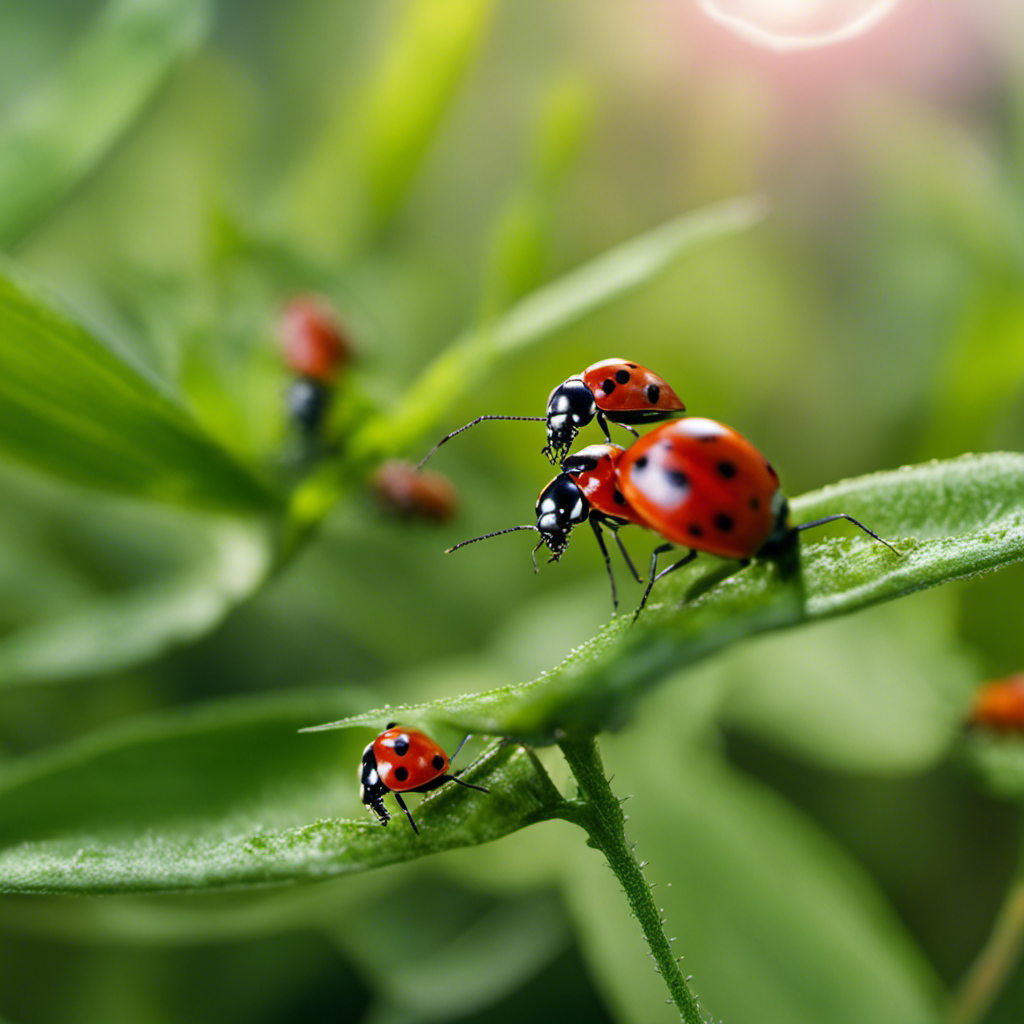
Ladybugs are a fantastic natural solution for pest control in your garden. These small insects are highly effective at managing pests and can be a valuable addition to any garden.
Ladybugs are known to prey on common garden pests such as aphids, mites, and scale insects. By introducing ladybugs into your garden, you can establish a natural pest control system that reduces the need for harmful chemical pesticides.
Ladybugs are voracious eaters, consuming large numbers of pests daily, making them a sustainable and practical option for pest management. Attracting ladybugs to your garden is easy – simply plant flowers like daisies, dill, and fennel, which provide a food source for these beneficial insects.
Embracing natural predators like ladybugs is a simple yet effective way to maintain a healthy and thriving garden while promoting environmental sustainability.
Companion Planting for Pest Deterrence
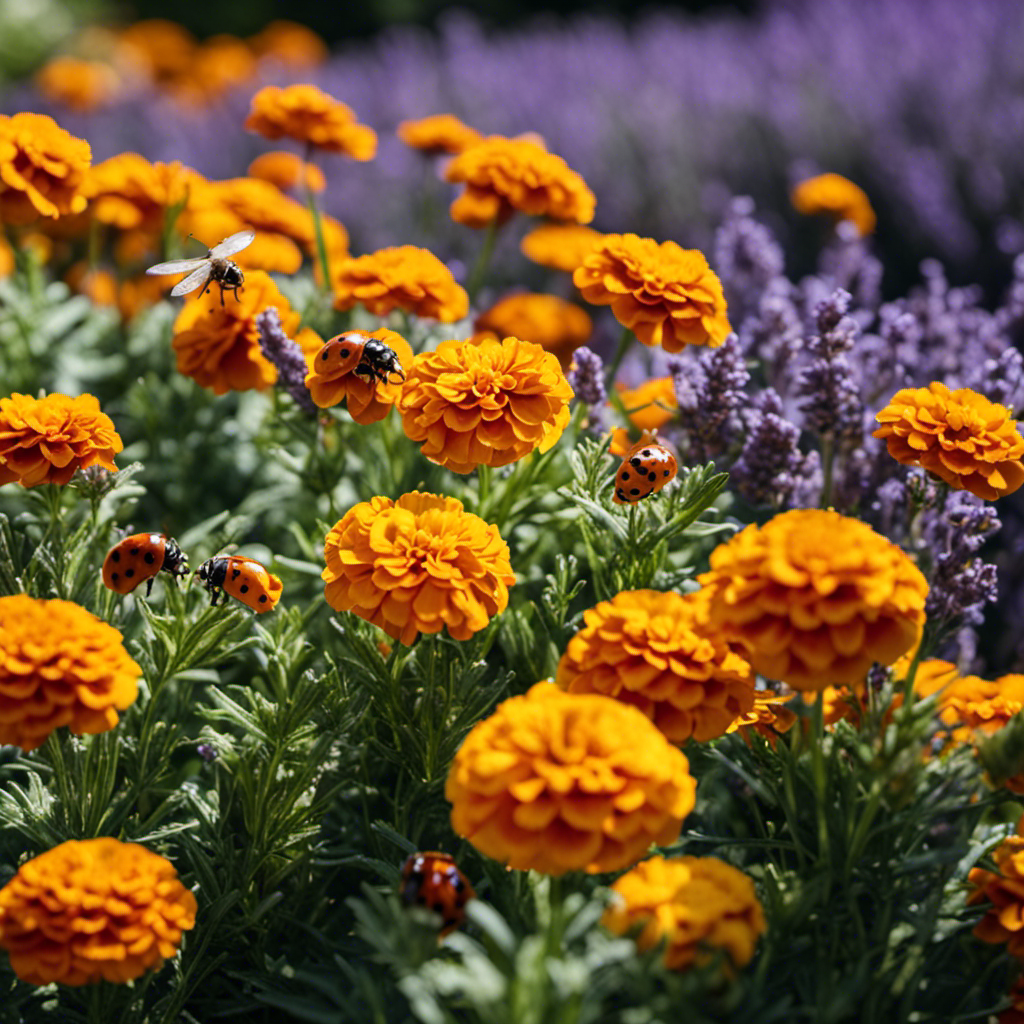
Using companion planting for pest deterrence is a great way to manage pests in your garden while promoting sustainability. This technique involves strategically planting certain plants together to enhance pest control. Here are four effective methods you can try:
-
Crop rotation for pest prevention: Rotate your crops each season to disrupt the life cycle of pests and reduce their numbers. This prevents pests from developing resistance to specific plants and helps maintain a healthy ecosystem in your garden.
-
Trap crops for pest diversion: Planting trap crops like marigolds can lure pests away from your main crops. These sacrificial plants attract pests with their scent or appearance, safeguarding your desired crops from damage.
-
Beneficial insect-attracting plants: Certain plants, such as dill and yarrow, attract beneficial insects like ladybugs and lacewings that prey on pests. By including these plants in your garden, you can encourage natural pest control.
-
Companion planting for scent masking: Some plants, like garlic and onions, have strong scents that can mask the scent of more vulnerable plants. By interplanting these strong-smelling crops, you can confuse pests and deter them from attacking your desired plants.
Incorporating these companion planting techniques into your garden can help reduce pest problems in an eco-friendly and sustainable way.
Homemade Organic Pest Sprays
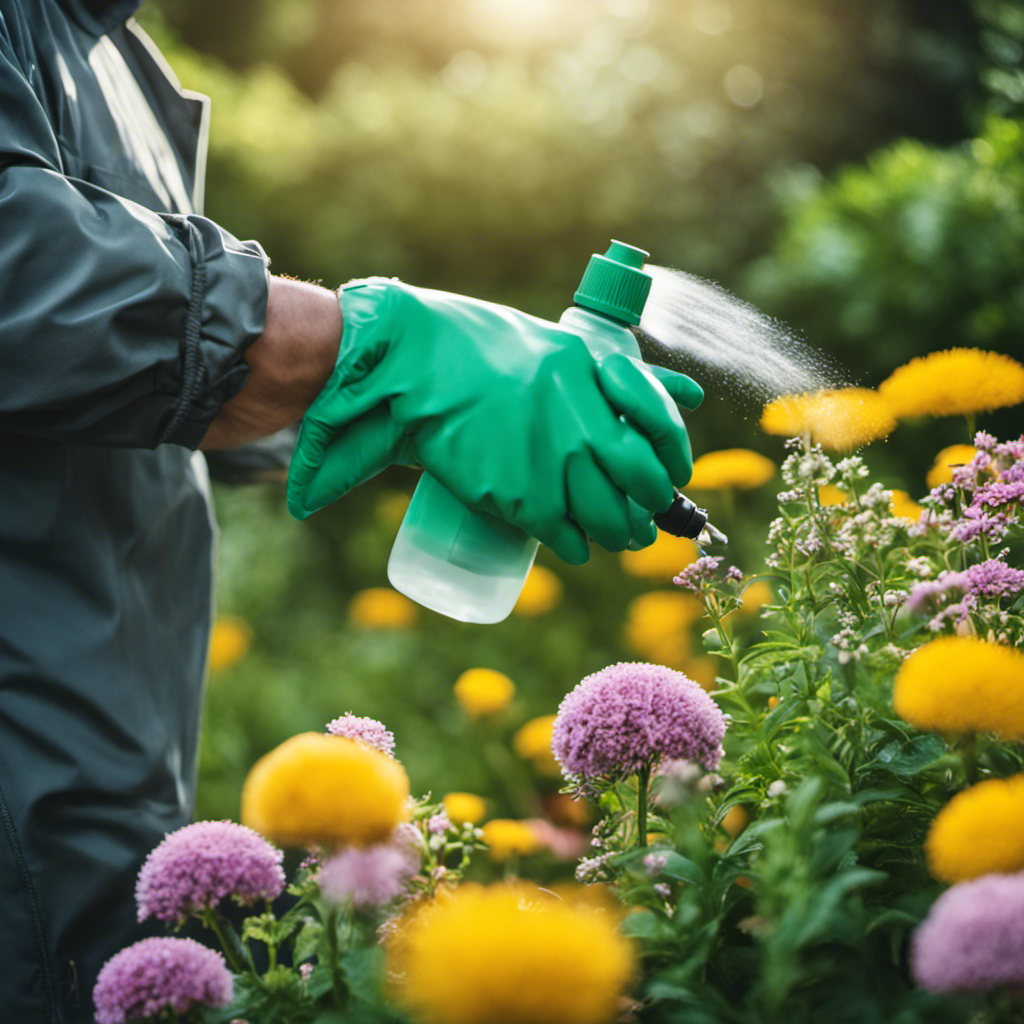
To effectively manage pests in your garden while promoting sustainability, you can try making your own homemade organic pest sprays. These sprays aren’t only effective but also safe for the environment and your plants.
One option is to create remedies using essential oils for pest control. Essential oils like peppermint, garlic, and neem oil have natural properties that repel insects. You can mix a few drops of these oils with water and spray the solution onto your plants to keep pests away.
Another approach is to use pest traps and barriers. You can make sticky traps by combining water, dish soap, and sugar to catch flying insects. Additionally, placing physical barriers like netting or mesh around your plants can prevent pests from reaching them.
Beneficial Insects for Pest Management
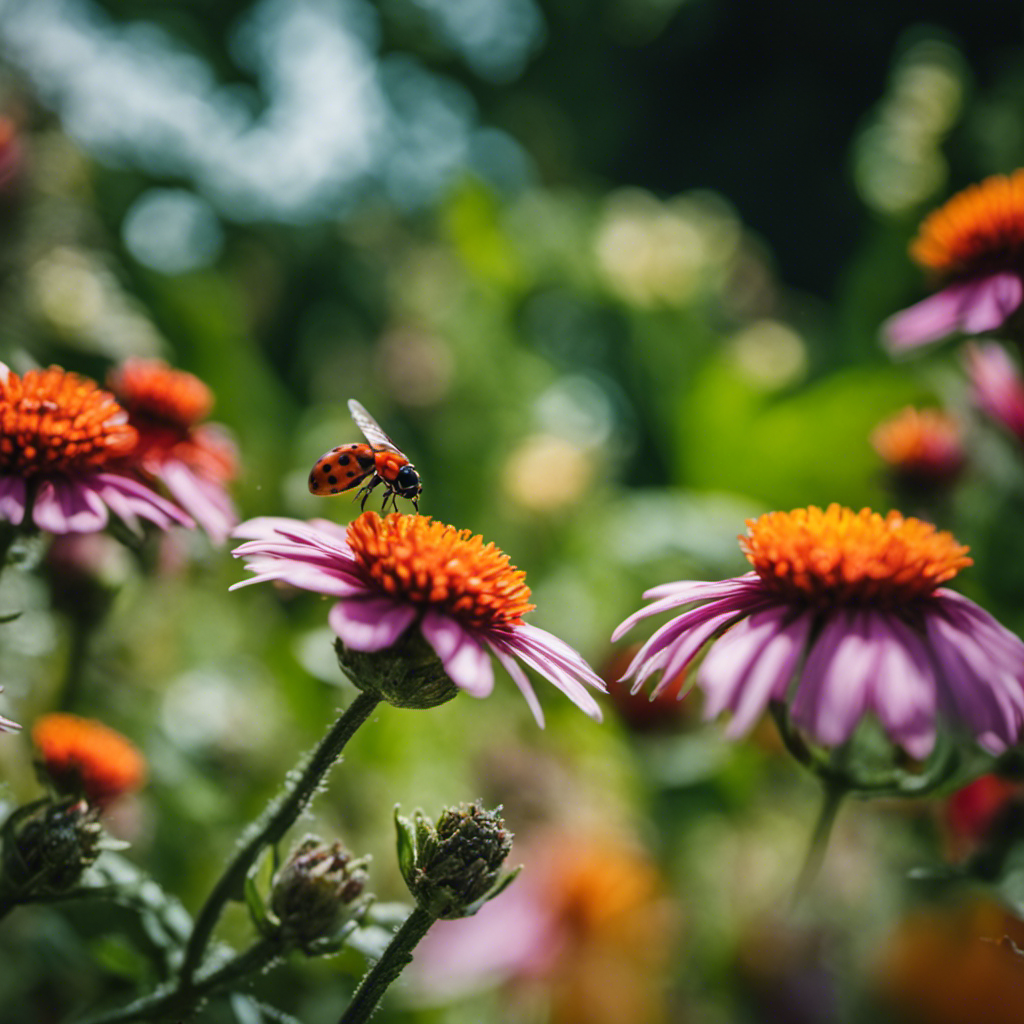
One effective way to manage pests in your garden is by attracting a variety of beneficial insects. These insects play a crucial role in maintaining a healthy ecosystem and can naturally control pests, reducing the need for harmful pesticides.
Here are four ways you can attract beneficial insects to your garden:
-
Plant flowers that attract pollinators: By planting a diverse range of flowers, you can attract bees, butterflies, and other pollinators. These insects not only help pollinate your plants but also act as natural predators for pests.
-
Create habitats for beneficial insects: Provide shelter and food sources for beneficial insects by incorporating features like insect hotels, native plants, and water sources in your garden.
-
Use biological control methods: Introduce beneficial insects like ladybugs, lacewings, and praying mantises to your garden. These insects feed on pests and help keep their populations in check.
-
Avoid using pesticides: Pesticides can harm beneficial insects as well. Opt for organic pest control methods and use pesticides as a last resort.
Soil Health and Pest Resistance
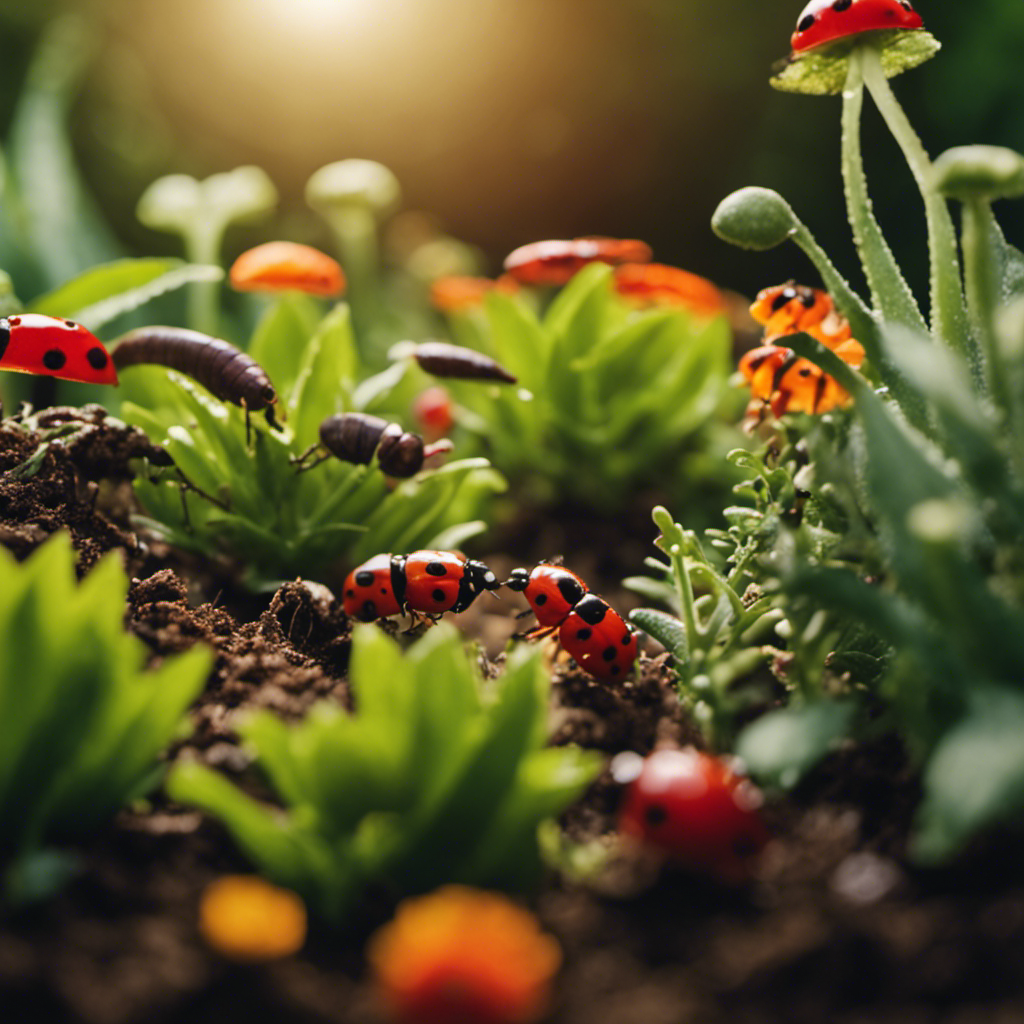
Maintaining a healthy garden ecosystem involves nurturing soil health and building pest resistance. One effective way to achieve this is by using organic fertilizers and practicing crop rotation. Organic fertilizers, such as compost and manure, provide essential nutrients to the soil without the harmful chemicals found in synthetic alternatives. They improve soil structure, promote microbial activity, and enhance nutrient availability, creating a resilient and fertile environment for plants to thrive. Another beneficial technique is crop rotation, which involves planting different crops in a sequence to disrupt the life cycles of pests and diseases. By rotating crops, you disturb the habitat and food source of pests, naturally reducing their population. Additionally, different crops have varying nutrient requirements, preventing the depletion of specific nutrients in the soil. By incorporating these practices, you can maintain a healthy garden and promote pest resistance in a sustainable and practical manner.
| Organic Fertilizers | Crop Rotation |
|---|---|
| Compost | Legumes |
| Manure | Brassicas |
| Worm Castings | Alliums |
Conclusion
As you begin your journey to eliminate pests in an environmentally friendly way, it’s important to remember that nature has provided us with numerous tools to maintain a balanced garden.
By utilizing natural predators, practicing companion planting, making homemade organic pest sprays, and fostering a healthy soil environment, you can protect your plants without causing harm to the planet.
So, embrace these sustainable methods and not only will you nurture your garden, but you’ll also develop a deeper connection with the intricate web of life.
